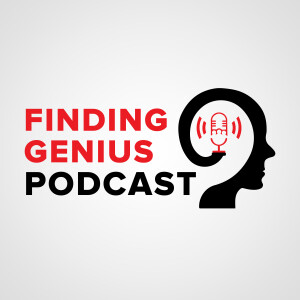
Food poisoning, pollution, infection, radiation: cell damage is happening in our bodies on an almost continuous basis, from so many sources. If the damage doesn’t result in cell death, then the cell will adapt to the damage.
But what happens when, in the process of adapting, a cell creates its own insult, becoming a “victim of itself”?
Saverio Gentile, PhD, explains this and more, including:
- What differs between the vascularization of tumor tissues and vascularization during normal development
- Where the inhibition of cell proliferation comes from
- Whether cancer is a maladaptation to chronic insult, random, or both
- Why cancer cells which recur after chemotherapy are particularly dangerous
Gentile is a research assistant professor at the University of Illinois College of Medicine who joins the show to offer insight on a number of compelling questions about cancer, and share his research findings on the manipulation of ion channels in treating different tumors.
According to Gentile, cancer is nothing more than a normal cell that has lost control of specific parameters, like the ability to stop proliferating when a normal cell would, and the controlled use of biochemical inputs and outputs.
He explains when and how an otherwise normal cell, while trying to adapt to an insult, can actually worsen the problem, leading to additional uncontrolled and improperly regulated cellular pathways.
Once there are enough of these cells, they may form a tumor, and begin creating an environment in which their growth is favored, such as by redirecting blood vessels toward the area of the tumor. The larger the tumor, the greater the signaling for the promotion of tumor growth.
Gentile discusses the heterogeneity of tumors, three primary categories of breast cancers and how they differ in appearance, behavior, and response to therapeutics, the difference between neoplasms and cancer tumors, speculation as to why some cancers re-localize in certain areas and not others (e.g. brain versus skin), the relationship between tumors and microbiomes, the connection between viruses and cancer, and his research on ion channel manipulation in the treatment of cancer.
Tune in for all the details, and visit https://cancer.uillinois.edu/member/saverio-gentile-phd/ to learn more.
More Episodes
Create your
podcast in
minutes
- Full-featured podcast site
- Unlimited storage and bandwidth
- Comprehensive podcast stats
- Distribute to Apple Podcasts, Spotify, and more
- Make money with your podcast
It is Free
- Privacy Policy
- Cookie Policy
- Terms of Use
- Consent Preferences
- Copyright © 2015-2024 Podbean.com







